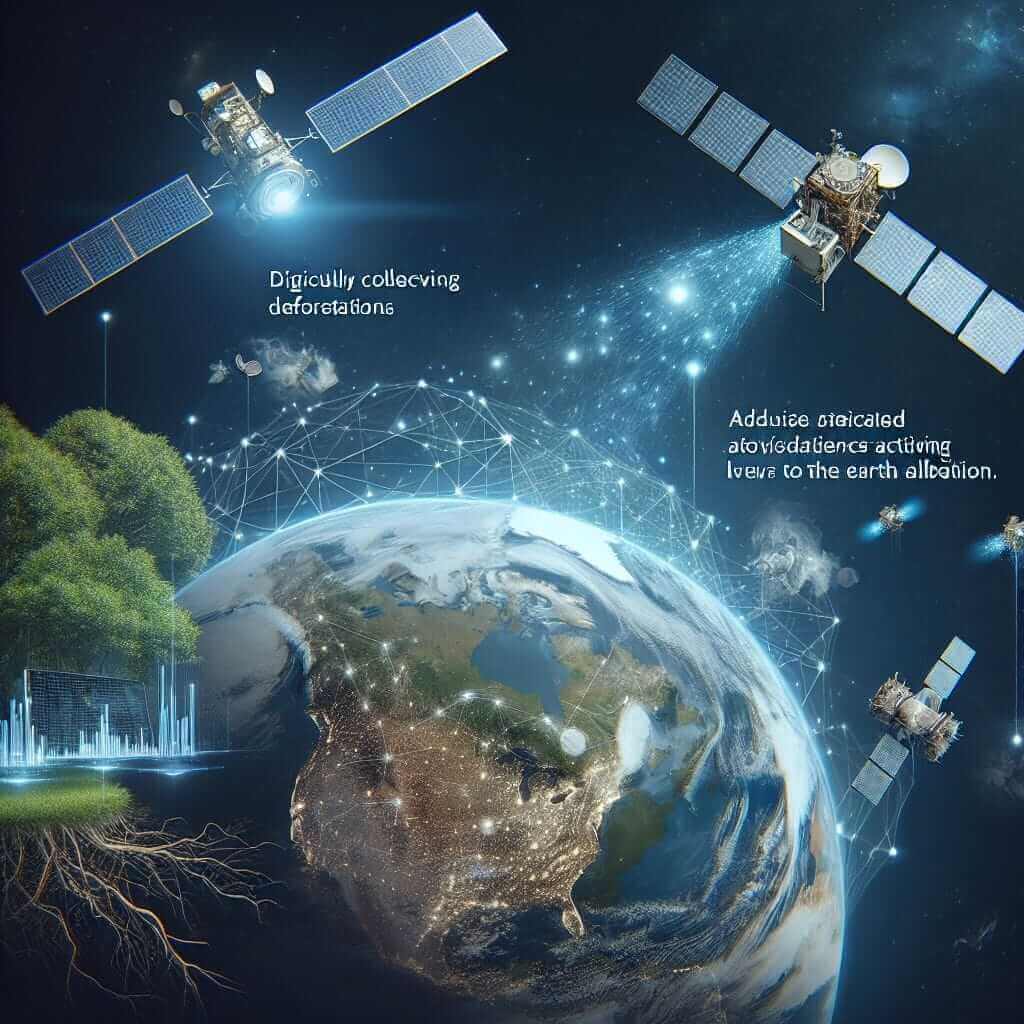The IELTS Reading test is a rigorous assessment that evaluates your ability to comprehend and analyze various texts. One of the emerging topics that could present itself in the Reading section is the use of Artificial Intelligence (AI) in environmental sustainability efforts. Based on the growing importance and frequency of this topic in real-world discussions, it is likely to appear in future IELTS exams.
The reading section often includes texts on contemporary and pressing issues. Over the past few years, topics related to environmental sustainability and technological advancements like AI have gained prominence due to their global impact. By analyzing trends and integrating relevant practice materials, you can better prepare for potential topics in the IELTS Reading test.
Reading Passage
AI is revolutionizing the way we approach environmental sustainability, offering innovative solutions to some of the world’s most pressing environmental challenges.
The Role of AI in Monitoring and Predicting Environmental Changes
AI technologies are being employed to monitor environmental conditions and predict future scenarios. For example, machine learning algorithms analyze large sets of climate data to predict weather patterns, aiding in disaster preparedness. These predictive models offer valuable insights, allowing governments and organizations to implement measures that mitigate potential damages from natural disasters.
Moreover, AI-driven remote sensing technology utilizes satellite imagery to monitor deforestation, desertification, and changes in biodiversity. This technology provides real-time data, enabling swift interventions to conserve and restore natural habitats.

AI in Enhancing Renewable Energy Efficiency
Renewable energy sources, such as solar and wind power, are essential components of sustainable development. AI algorithms optimize the performance of these energy systems by predicting energy production based on weather conditions. This leads to more efficient energy management and reduces reliance on non-renewable sources.
Furthermore, AI-powered smart grids adapt to energy consumption patterns, ensuring a balanced distribution of electricity. This not only maximizes the use of renewable energy but also minimizes wastage and reduces carbon footprints.
AI Applications in Sustainable Agriculture
Sustainable agriculture benefits significantly from AI technologies. Precision agriculture, powered by AI, uses data from various sensors to optimize farming practices. This includes monitoring soil health, predicting crop yields, and managing irrigation systems efficiently. AI-driven tools help farmers make data-informed decisions, leading to increased crop productivity and reduced environmental impact.
Additionally, AI helps in pest and disease management by identifying outbreaks early and recommending appropriate interventions. This contributes to reducing the overuse of pesticides and promoting biodiversity in agricultural ecosystems.
Practice Questions
Multiple Choice
-
What is one of the primary uses of AI in monitoring environmental changes?
- A. Promoting fossil fuel consumption
- B. Analyzing climate data to predict weather patterns
- C. Increasing deforestation
- D. Reducing biodiversity
-
How does AI contribute to renewable energy efficiency?
- A. By storing non-renewable energy
- B. By predicting energy production based on weather conditions
- C. By increasing wastage of electricity
- D. By promoting fossil fuel use
Identifying Information (True/False/Not Given)
- AI technologies have no role in disaster preparedness.
- AI-powered smart grids help balance electricity distribution.
Summary Completion
Complete the summary below with words from the text.
AI technologies in sustainable agriculture use data from various sensors to farming practices. AI-driven tools assist in making data-informed decisions, leading to increased crop productivity and reduced impact.
Answer Key
- B
- B
- False
- True
Summary Completion
- optimize
- environmental
Common Mistakes to Avoid
- Misunderstanding the main idea: Ensure you fully grasp the primary focus of the passage before answering questions.
- Ignoring context: Pay attention to the context within the passage to avoid misinterpreting the information.
- Overlooking keywords: Highlight important keywords in both the questions and the texts to easily locate relevant information.
Vocabulary
- **Deforestation (noun): /ˌdiːfəˈrestˈeɪʃ(ə)n/ – The clearing of trees and forests.
- **Biodiversity (noun): /ˌbaɪoʊdəˈvɜrsɪti/ – The variety of life in the world or a particular habitat.
- **Renewable (adjective): /rɪˈnuːəb(ə)l/ – Capable of being renewed; particularly relating to energy sources like solar or wind power.
- **Precision Agriculture (noun): /prɪˈsɪʒ.ən ˈæɡ.rɪ.kʌl.tʃər/ – Farming management based on observing, measuring, and responding to inter and intra-field variability in crops.
Grammar Focus
Passive Voice for Emphasis
Structure: [Subject] + [be] + [past participle] + [by + agent] (optional)
Example:
- Active: Developers use AI to monitor environmental changes.
- Passive: AI is used to monitor environmental changes by developers.
Usage: Passive voice is often used to emphasize the action and the recipient of the action rather than the doer.
Tips for Achieving a High Reading Score
- Practice Regularly: Regularly practice reading and answering questions under timed conditions.
- Enhance Vocabulary: Expand your vocabulary, particularly with terms related to contemporary issues like technology and environment.
- Skimming and Scanning: Develop skills to quickly identify main ideas (skimming) and locate specific information (scanning).
- Understand Question Types: Familiarize yourself with various IELTS question types and strategies to tackle each effectively.
By focusing on these strategies and regularly practicing with materials relevant to potential IELTS topics such as AI in environmental sustainability, you can enhance your reading comprehension skills and improve your overall performance in the IELTS Reading test.